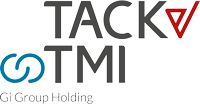4 Ways to Build Your Self-Awareness as a Leader
By George Aveling
As I indicated my last article, self-awareness is the number one trait to build your personal brand as an authentic leader.
So, how do we increase our self-awareness?
I’d like to share with you 4 ways to do this. They have proven to be effective in my personal experience of each of them as a leader, as a consultant and a coach.
1. Coffee-feedback sessions
Have “coffee-feedback” sessions with selected peers and team members on a one-to-one basis. You need to create the right conditions for these “heart-to-heart” sessions to be successful. These conditions are:
Select people that you trust to give you honest feedback. There is no point asking for feedback from people who are not going to be honest with you.
- Self-disclose – let them know that you want to improve as a leader – and that you need their honest feedback. This will help to create the conditions for you to have an honest conversation.
- Listen! When in the meeting, do more listening than talking. Thank them for their feedback and honesty. Tell them, “This is what I hear you saying…”. This signals that you are listening – and validates the listener.
- Stay open: DO NOT get defensive or give excuses. If you do this, it will be your last honest feedback with this person!
Do this with 3-4 people that you feel will be open with you. Ask for examples of behaviours – positive and negative to help you understand how other people see you.
The success of this approach depends on the openness of the person giving the feedback, and your openness to listening – and doing something about the feedback.
2. 360-degree feedback followed by feedforward
An online 360-degree assessment will give you feedback, taken through the eyes of 4-5 raters i.e. someone above you, peers and team members under you. The feedback is relative quick, easy and inexpensive. It is powerful, depending on the openness of your anonymous raters.
Follow up with feedforward: We run a version of these surveys in our organisation each year. The focus is on how well team members have lived our values. Once the confidential results are in, each team member has meetings with 3-4 colleagues to get feedforward on the areas that they want to focus on, based on the survey.
Feedforward is a simple process whereby we ask for suggestions on what we can do to improve in the future. It’s positive and safe. For example, if the 360-degree feedback is that “I have not been a team player”, then my feedforward question to colleagues might be, “What suggestions can you make for me to be a better team player in the future?”
The key rule of feedforward is that all you can say in response to the feedforward is “Thank you”.
Once again, stay open to all feedforward suggestions.
This is a positive process that looks to the future, rather than backwards on past behaviours.
Feedforward is connecting and powerful in impact.
3. Personal Emotional Quotient Meter
This is a self-reflection exercise that you can do to build self-awareness. It’s a 30 minute online emotional intelligence (EI) assessment. The results will give you greater understanding of yourself in terms of your self-awareness, self-management (e.g. control of your emotions, how you deal with stress, self-motivation) social awareness and social skills.
The report will give you an indication of your strengths and weaknesses from an Emotionally Intelligent (EI) point of view. Again, this is a low cost, high impact way for you to increase your self-awareness. In this case, the assessment should be accurate. After all, it is you who answered the questions!
The success of this approach depends on how honest you are with your responses.
4. Johari Window
Johari Window is an extremely powerful psychological tool that helps an individual to understand his relationship with himself and others. When facilitated well within teams, the sessions help participants understand their “blind spots”. These are the behaviours that they can’t see, but which those around them can see.
When facilitated well, Johari Window sessions break down barriers between team members – including leaders. A Johari Window session involving 12 people might take about 1.5 -2 hours. The session creates safe conversations where team members get to understand each other better – and build self-awareness by getting to know blind spots that they did not know existed.
After facilitating many Johari Windows sessions with senior leadership teams, I should no longer be surprised by the positive impact that this tool has on team members, but I still am. The session builds teams by reducing blind spots that team members have, and by fostering increased understanding.
In conclusion…
Studies have shown that teams and organisations perform better when leaders are authentic and walk the talk.
As you can see through the tools mentioned above, the key to being self-aware on your journey to becoming an authentic leader is to be open and honest with yourself. This takes courage – and if you’re lacking in courage as a leader, well, that’s for another article.
I wish you well on your journey to authenticity. And, if you have more tips to share, please share them in the Comments section.
Until next time.
